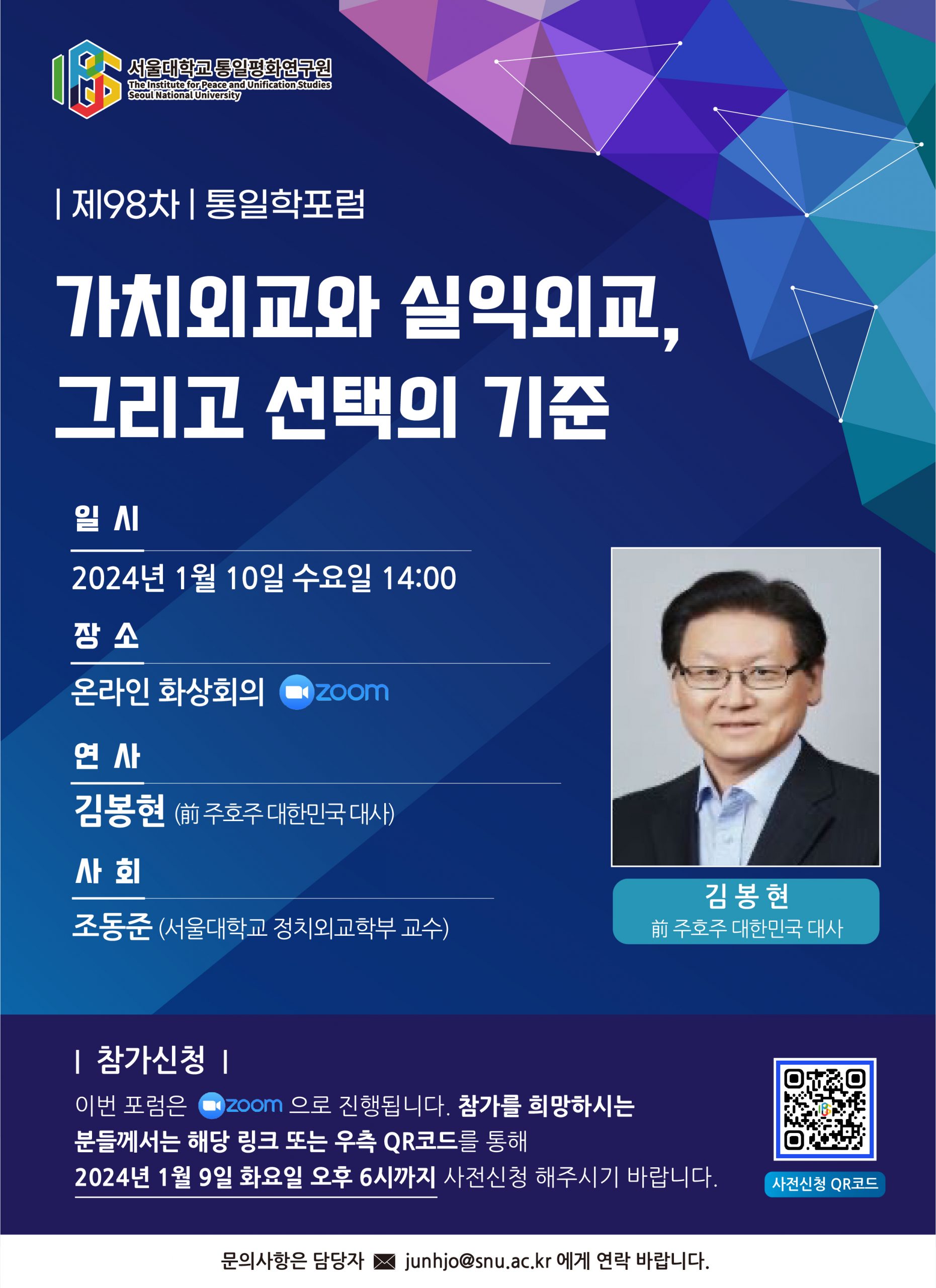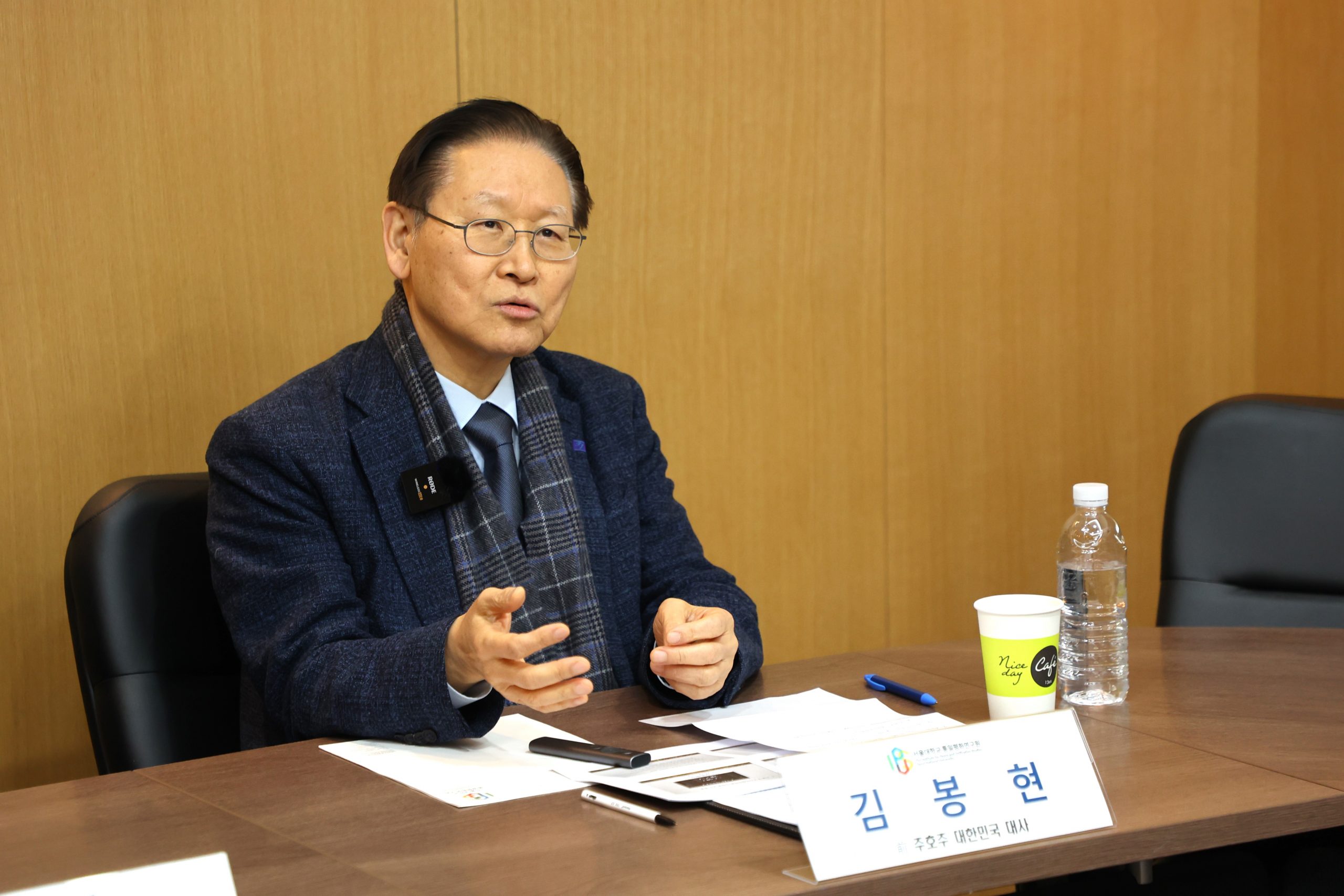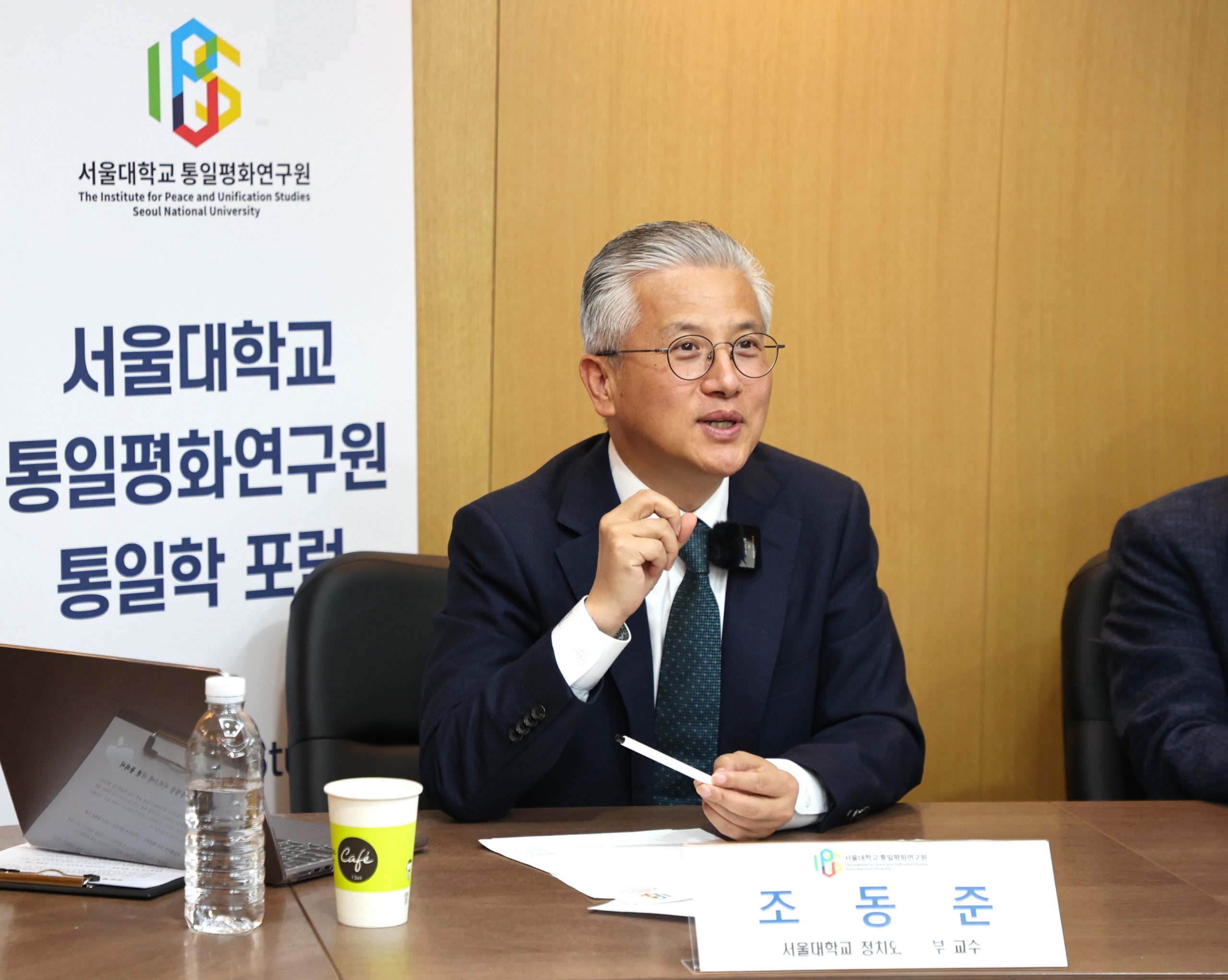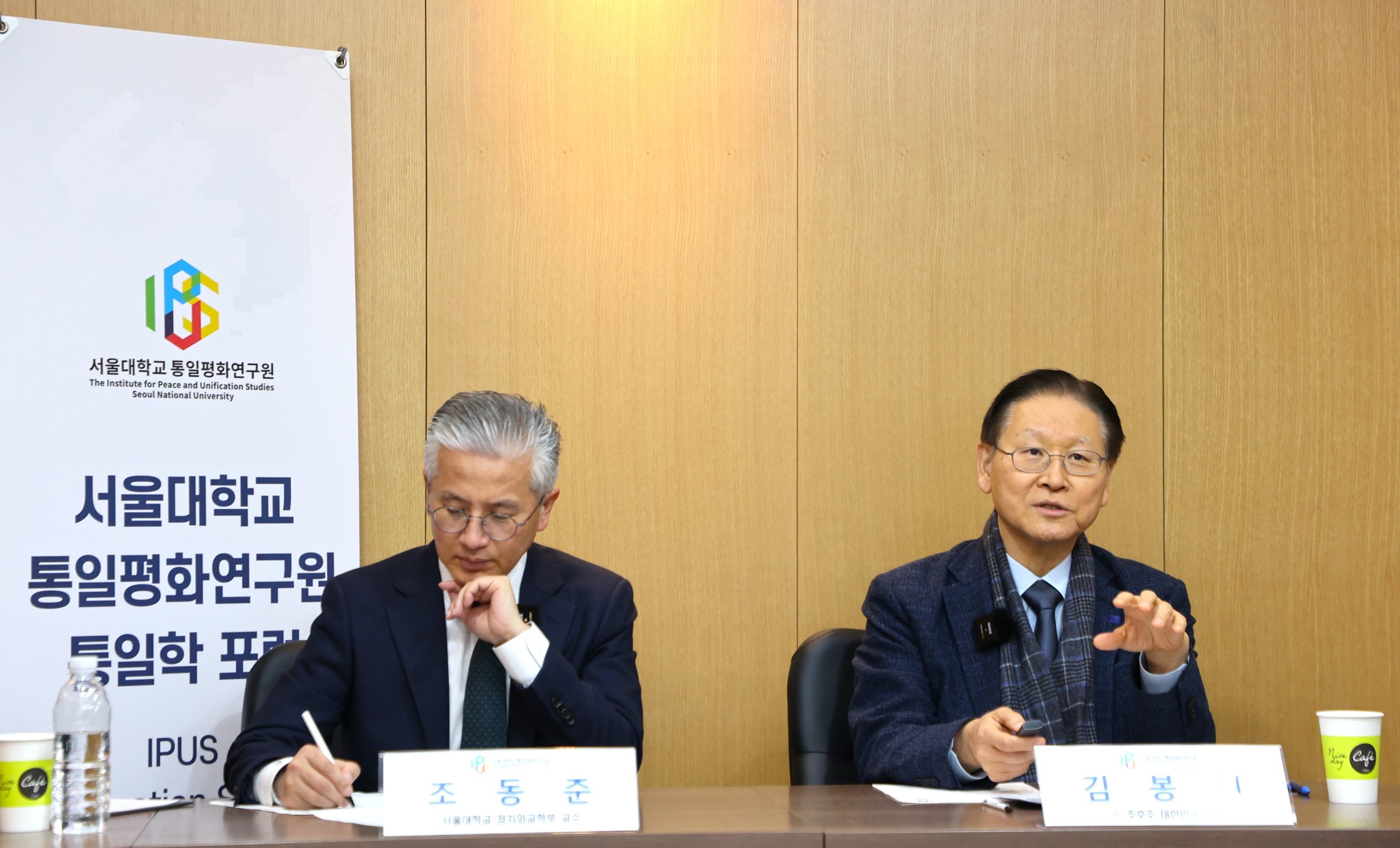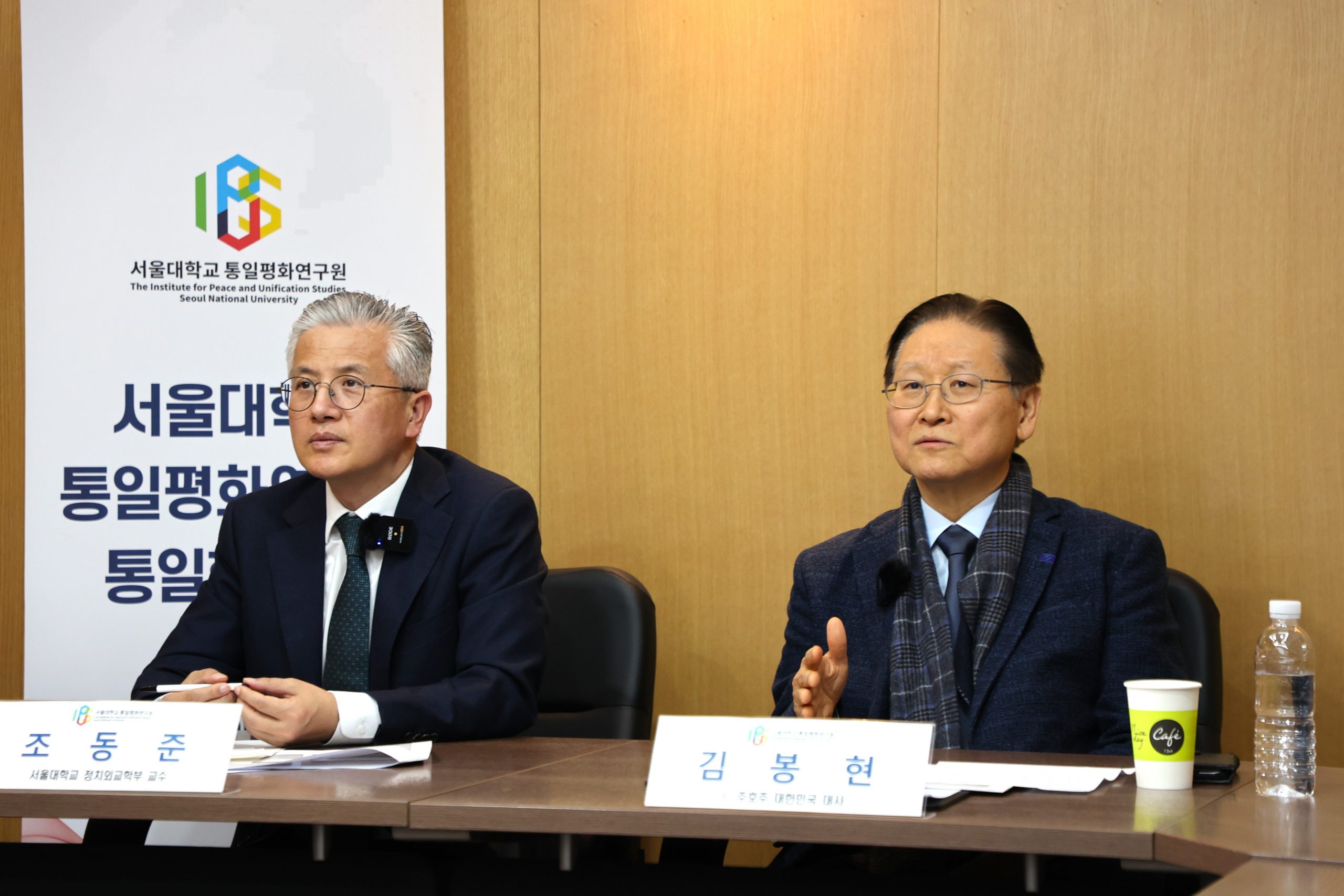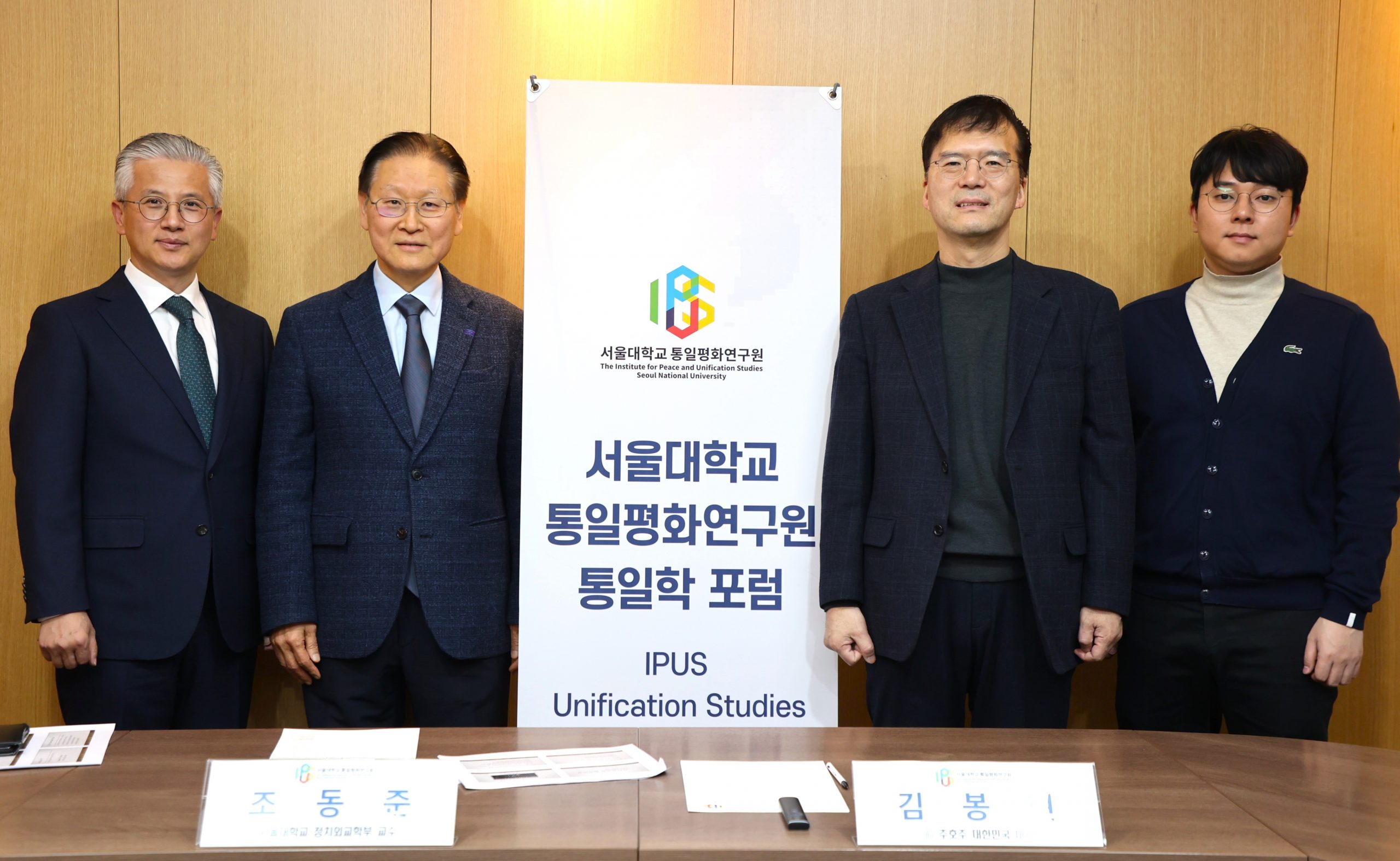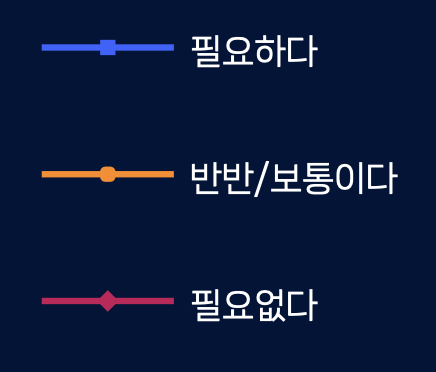[98th Unification Studies Forum] Value Diplomacy vs. Pragmatic Diplomacy and the Criteria for Choice
- Date&Time: Wednesday, January 10, 2024, 14:00 – 15:30 (KST)
- Venue: Online Video Conference(ZOOM)
- Moderator: Jo, Dong-Joon (Professor of Political Science and International Relations at Seoul National University)
- Speaker: Kim, Bong-hyun (Former Ambassador of the Republic of Korea to Australia)
- Topic: Value Diplomacy vs. Pragmatic Diplomacy and the Criteria for Choice
The Institute for Peace and Unification Studies at Seoul National University(IPUS at SNU) hosted the 98th Unification Studies Forum on Wednesday, January 10, 2024, under the theme of ‘Value Diplomacy vs. Pragmatic Diplomacy and the Criteria for Choice’ with Kim Bong-hyun, former Ambassador of the Republic of Korea to Australia. The “Unification Studies Forum” is an expanded and revamped version of the “Unification Policy Forum,” which was held 75 times from 2006 to 2020, and is now in its 98th session. Jo, Dong-Joon, Professor of Department of Political Science and International Relations at Seoul National University, served as the moderator and opened the forum with a welcome speech.
In this forum, former Ambassador Kim Bong-hyun sought to provide his own solution to the debate over value diplomacy and pragmatic diplomacy based on his experience as a diplomat. “The issue of value diplomacy and pragmatic diplomacy is the issue of the Grand Quest,” he explained, emphasizing that “we must go through it with the spirit of the Grand Quest, the spirit of making Korea a first-class country.” “In President Yoon’s inaugural address, the emphasis on ‘universal values’ stood out, which was defined as the value of ‘freedom,'” Kim explained. “Since then, the value of freedom has been continuously emphasized, and the Yoon administration’s value diplomacy can be understood as ‘freedom-seeking’ diplomacy, which can be realized in bilateral and multilateral diplomacy.”
Former Ambassador Kim cited the Australia-China, Canada-China, Germany-Russia, and South Korea-China/Russia/Japan cases as examples of bilateral values diplomacy. Kim explained that “Australia has publicly pursued a values diplomacy, with Foreign Minister Bishop stating in 2014 that Australia would ‘bravely stand up to China to defend peace, progressive values, and the rule of law,’ and Prime Minister Morrison naming China as the source of COVID-19 in 2020.” “China’s trade retaliation against Australia has been widespread, but China’s import sanctions have not hurt the Australian economy enough to change Australia’s values diplomacy,” Kim argued. In addition, “In December 2018, Canada arrested Huawei Vice Chairman Meng Wanzhou in Vancouver at the request of the U.S., and both countries expelled diplomats in response, resulting in an unprecedented breakdown in diplomatic relations between Canada and China,” Kim explained. “However, Canada chose values despite the potential for substantial damage to its interests, and experts believe that the overall U.S.-Canada economic and trade relationship will continue despite this conflict,” Kim said. Moreover, “Germany is heavily dependent on Russia for energy, including gas, coal, and oil, and yet, in the wake of Russia’s invasion of Ukraine, Germany has announced plans to provide Ukraine with 17 billion euros, or about $2.4 trillion worth of arms by 2027,” Kim explained. “Germany is facing an energy crisis due to Russia’s suspension of energy exports to Germany, but Germany is pursuing value diplomacy by trying to overcome the energy crisis through self-help measures such as restarting coal-fired power plants and halting nuclear power plant plans, and public opinion is united against it,” he said.
Based on these examples, Kim explained that “South Korea has also been experiencing a deterioration in its relations with China due to the deployment of THAAD, strengthening its alliance with the U.S., the trilateral solidarity of values with the U.S., Japan, and South Korea, and the mention of peace and stability in the Taiwan Strait,” which led to China’s trade retaliation against South Korea. “In 2023, South Korea recorded its first trade deficit with China since the establishment of diplomatic ties in 1992, which is not simply a result of trade retaliation, but rather a sticking point as China increases its own procurement of key items,” Kim explained. In response to criticism that “South Korea’s support for Ukraine has provoked Russia, causing a tightening of North Korea-Russia relations,” Kim also noted that “there has been no real damage.” In the case of Japan, however, Kim explained that “unlike other cases, there is a public opinion that pursues values in the relationship with Japan,” and pointed out that “there is a problem of consistency in which value diplomacy and practical diplomacy are divided depending on the case.” “If qualitative methods have limitations, it is necessary to analyze them in depth with quantitative analysis,” Kim argued.
In terms of multilateral value diplomacy, Kim argued that “the fact that South Korea made different decisions by different governments in the process of enacting the North Korean human rights resolution in the UN is also a problem of consistency.” “We should maintain a consistent attitude toward human rights issues,” he said, recalling that the Sri Lankan human rights resolution sought to uphold the principle of consistency in human rights. “The struggle between value and utility also plays an important role in determining individual behavior, and in the end, both individuals and nations must answer the question of ‘value or utility,'” Kim said. In response, Kim quoted Bertrand Russell’s quote, “Wise men are to endure present paons for the sake of future benefits and to make a compomise between the conflicts” and argued that “values and practicality are to be in harmony but when in conflict with each other, we must choose values, and that is the way to raise Korea’s international prestige.” He emphasized that “this requires consistent and mature public support,” and stressed that “this path is in line with Korea’s long-term interests and will bring greater benefits.

